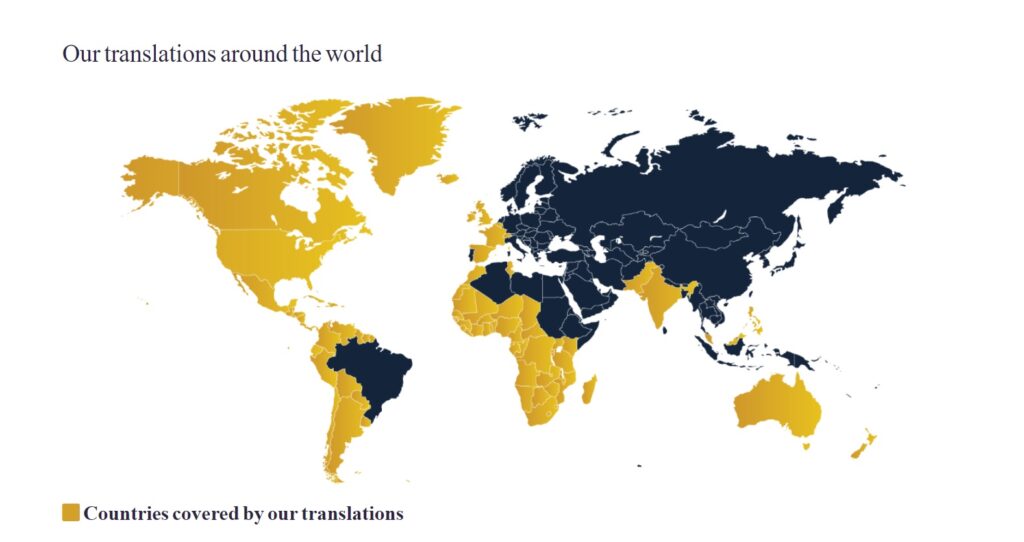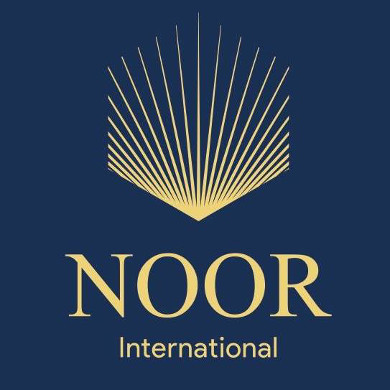In around 2018, another publisher that specializes in ‘translating the meanings of the Holy Quran into international languages’ emerged in Riyadh, registered as ‘Noor International.’ During its first four years of operation, this publishing house has produced English, French, European Spanish and Latin American Spanish translations of the Qur’an. For its English translation, it simply reprinted the Saheeh International Qur’an translation (specifically the second revised edition from 2004), both as a complete text and in the form of selected sections, such as the 30th juzʾ. Similarly, the French translation was not new either: Noor International republished ‘Le sens des versets du Coran’ (‘The Meanings of the Verses of the Qur’an’) by the Tunisian scholar Nebil Radhouane (d. 2018), first published in 2012 by Al-Muntada al-Islami Trust. Noor International repurposed both the text of the translation and Radbouane’s commentary. According to the author’s introduction to one of the latest editions of ‘Le sens des versets du Coran’ (Noor International excluded this text, probably to make the edition more practical in usage), his interpretation of the text was based on ‘les exegeses d’Ibn Kathîr, At-Tabarî, As-Sa ̒dî et Al-Baghawî. Quant à la lecture, elle s’est toujours appuyée sur la version de Hafç’ (‘the commentaries by Ibn Kathīr, al-Ṭabarī, al-Sa’dī and al-Baghawī … also the Ḥafṣ variant reading’). One can clearly see that these exegetical influences conform to the ‘standard’ Saudi Arabian exegetical canon for interpretation and translation of the Qur’an as developed by the establishment ulema and included in the recommendations given to Qur’an translators by the academic board of the King Fahd Qur’an Publishing Complex. The Ḥafṣ reading also has the advantage that the translation is going to have a more universal than, for example, the more limited appeal of the Warsh reading (a variant reading that is largely popular in Algeria, Morocco and parts of Tunis). The translation generally looks to be a fairly literal grammatical interpretation, in which the commentary is full of Arabic words, which are presented in the original Arabic script rather than being transliterated as they are in most other translations.

The latest two works published by Noor International – translations of the Qur’an into European and Latin American Spanish (Español Latinoamericana) have also been published before, by the Riyadh-based Al-Muntada Al-Islami Foundation and Dar Qiraat. The introduction attached to the first edition in Latin American Spanish does not provide names of the translators, simply referring to this work as a ‘team effort.’ It contains a lot of interpolations and plenty of commentary, but generally looks to be a new work that is not particularly dependent on popular Spanish translations like those by Abdel-Ghani Melara Navío (also published by the KFQPC and Darussalam) or Isa Garcia (a recent work by a Muslim convert from Argentina, which has been widely promoted in Latin America). The Noor International translation refers to the legacy of some ‘exégetas’ (exegetes), although no specific authority or commentary is mentioned. Both versions in Spanish require further study, but overall it looks as if it is primarily an explanatory translation with a special focus given to theological issues such as God’s divine attributes, accompanied by simple commentary, containing only a few Arabic words (such as gayb). As the introduction clearly states, this kind of simplicity is used ‘para que tanto el lector musulmán como el no musulmán se beneficien de dicho conocimiento’ (‘so that both the Muslim and non-Muslim reader can benefit from such knowledge’). We see, in general, a kind of trend of ‘simplification’ in the translations published by Noor International: they are physically small, sometimes pocketbook size, with no lengthy introductions or other additional matter, and are usually designed for free distribution funded by private and institutional donations.


Although Noor International has only published four translations so far, with only one being more or less original, it is already clear that their missionary priority is distribution outside the Muslim world, and apparently a few more translations are scheduled to appear this year. The Noor International offerings are published in different formats, including audio recordings and interactive e-books, and demonstrate the continuing demand for Muslim-authored translations of the Qur’an, even in markets where many such works are already available to the reader.
Mykhaylo Yakubovych
